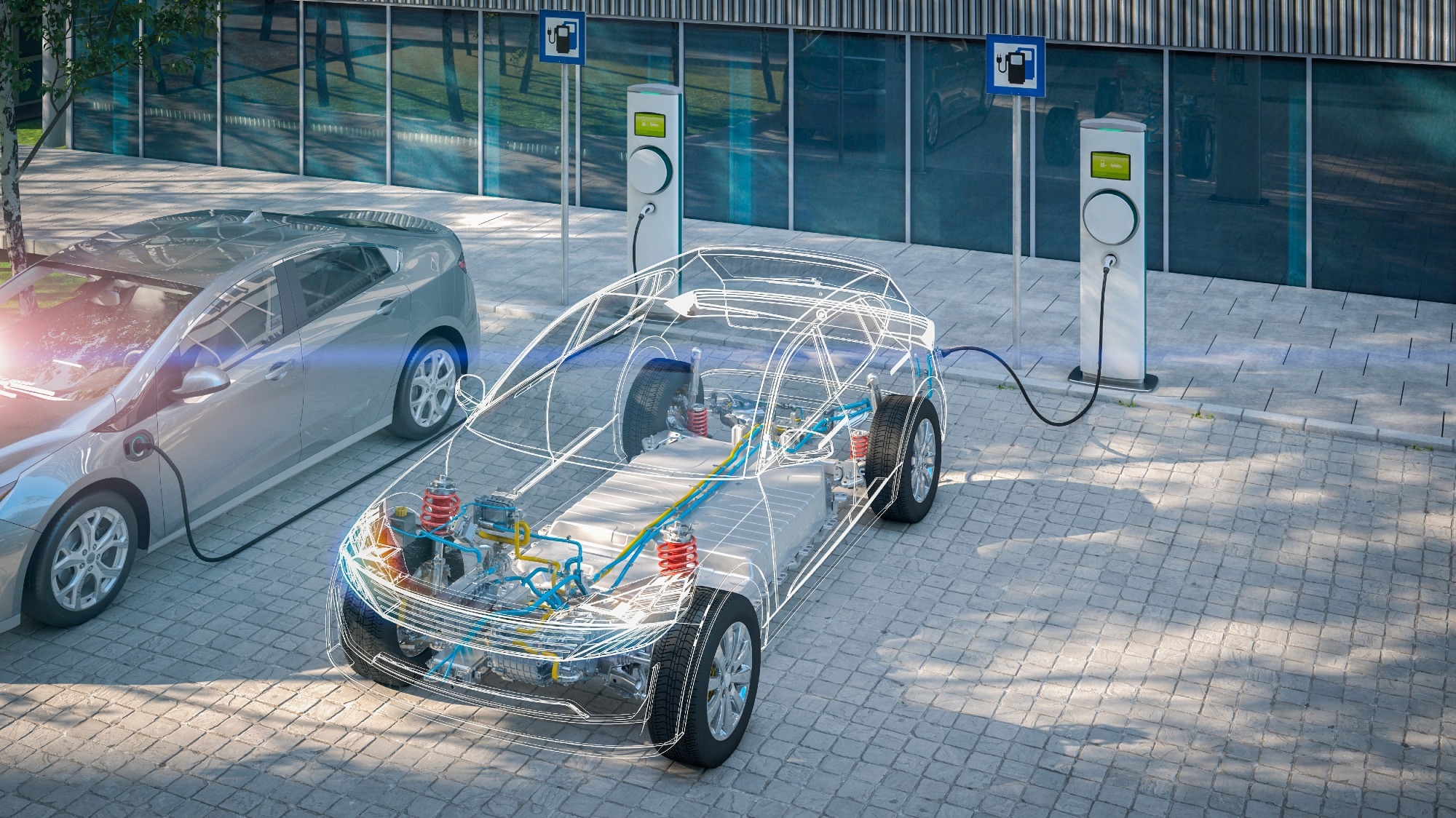
Image Credit: Shutterstock.com/ Herr Loeffler
Across many industries and markets, lithium-ion (Li-ion) batteries are crucial components of devices and machinery, including smartphones, solar power storage, and power supplies. Thus, maintaining good battery health is absolutely vital in today’s world.
The algorithm is able to use pattern recognition and predictability models to see how various driving styles influence the performance of the vehicle’s battery. The researchers claim this could help extend battery life and charging cycles while also reducing charging times.
This method could unlock value in so many parts of the supply chain, whether you’re a manufacturer, an end user, or a recycler, because it allows us to capture the health of the battery beyond a single number.
Dr. Alpha Lee, Group Leader, University of Cambridge
Non-Invasive Battery Probing
The unique approach of the method means that a general overview of how the battery is performing can be delivered via non-invasive probing, thus preserving the health of the battery. The team recently published their working method in the journal Nature Communications.
Battery health, like human health, is a multi-dimensional thing, and it can degrade in lots of different ways.
Penelope Jones, Cavendish Laboratory, University of Cambridge
“Most methods of monitoring battery health assume that a battery is always used in the same way. But that’s not how we use batteries in real life… how you drive will affect how the battery degrades,” Penelope continued.
The non-invasive probing method works by delivering a combination of electrochemical impedance spectroscopy measurements with probabilistic machine learning methods. To put it another way, the probe transmits high-dimensional pulses into the battery and then measures the electrical responses, which act as a ‘biomarker’ and help determine the health of a battery.
These electrical signals are converted into data which translates as the battery health before being entered into the algorithm, which could then use the data to make predictions about how the battery would perform.
After testing eighty-eight commercially available batteries, the researchers found that their algorithm was accurate enough to make its predictions without any prior knowledge of battery usage history.
Safer, Long Life Batteries
The team used lithium cobalt oxide (LCO) cells, but they report that the method could be applied across various battery chemistries in modern electric vehicles. This means that machine earning could not only optimize battery usage but also help ensure safer, longer-lasting batteries.
This method could unlock value in so many parts of the supply chain, whether you’re a manufacturer, an end user, or a recycler, because it allows us to capture the health of the battery beyond a single number, and because it’s predictive.
Dr. Alpha Lee, Group Leader, University of Cambridge
“It could reduce the time it takes to develop new types of batteries, because we’ll be able to predict how they will degrade under different operating conditions,” Dr. Lee continued.
The technology will not only benefit EV drivers and manufacturers but could also be of use to companies with large EV fleets for distribution as well as helping address the climate crisis as it could encourage wider uptake of EV usage and support the energy transition away from fossil-based fuels.
The team will continue to work with manufacturers to help develop its algorithm to advance future battery technology.
References and Further Reading
Jones, P., Stimming, U. and Lee, A., (2022) Impedance-based forecasting of lithium-ion battery performance amid uneven usage. Nature Communications, [online] 13(1). Available at: https://www.nature.com/articles/s41467-022-32422-w
University of Cambridge. (2022) Machine learning algorithm predicts how to get the most out of electric vehicle batteries. [online] Available at: https://www.cam.ac.uk/research/news/machine-learning-algorithm-predicts-how-to-get-the-most-out-of-electric-vehicle-batteries
Disclaimer: The views expressed here are those of the author expressed in their private capacity and do not necessarily represent the views of AZoM.com Limited T/A AZoNetwork the owner and operator of this website. This disclaimer forms part of the Terms and conditions of use of this website.